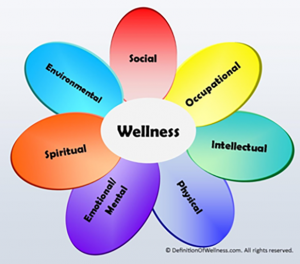Since March of 2013, through a contractual relationship with the National Council for Behavioral Health, Afia has been providing integrated care consultation services in over 20 states. A significant part of this consultation is done in the form of a day-long training entitled, “Making the Transition From Case to Care Management.” The training curriculum, developed by the National Council, has the goal of supporting people with behavioral health needs to achieve better health care outcomes.
Often times, the training starts with a skeptical audience of case managers who are worried about how they are going to “add this on” to their already heavy workload. Other participants are convinced that they are already “doing this work” so why are we talking about this as a big change? But as we begin a conversation of the overall health of the people we work with and support through their recovery journey, participants become more aware of the fact that just because people have access to healthcare, it doesn’t necessarily equate to good health outcomes.
We have the good fortune to be living in an era of unprecedented access to medical advancements in technology and research that allow people to recover from medical conditions that less than seventy five years ago had a high rate of mortality. Vaccines, medications, surgical procedures and early detection of cancer and other previously fatal conditions, including those caused by injuries, have created the potential for people have longer life spans.
Despite these advances, people with mental illness have a life expectancy of of 53 years of age. People with Intellectual / Developmental Disabilities (IDD) have a mortality rate that is 4 – 6x greater than the general population. Given the complex lives that are common in people with behavioral health needs, poverty, lifestyle and stress often create significant barriers to achieving recovery from and resilience in living with a behavioral health condition or a developmental disability. Within the behavioral health services continuum, case management has been an essential service in breaking down barriers. Within case management, creating access to medical services, including helping people obtain medical coverage and finding a primary care physician has been a strong focus, if not a state required function.
 Moving from case management to a care management model is more transformational as opposed to “adding on” a service. It involves moving from directing the person to complete an application for some sort of medical coverage and making a doctor’s appointment, to having an overall understanding of the risk factors that may lead to chronic care conditions (including Obesity, Type 2 Diabetes, Heart Disease and Stroke). It involves creating services that support healthy lifestyles that include eating nutritious food despite living in poverty, creating opportunities for and supporting more physical movement, and designing interventions that help people with behavioral health needs to reduce stress and to cut down and/or quit smoking.
Moving from case management to a care management model is more transformational as opposed to “adding on” a service. It involves moving from directing the person to complete an application for some sort of medical coverage and making a doctor’s appointment, to having an overall understanding of the risk factors that may lead to chronic care conditions (including Obesity, Type 2 Diabetes, Heart Disease and Stroke). It involves creating services that support healthy lifestyles that include eating nutritious food despite living in poverty, creating opportunities for and supporting more physical movement, and designing interventions that help people with behavioral health needs to reduce stress and to cut down and/or quit smoking.
A primary goal of the training, and the overall movement to care management is to create a culture of whole health, which includes taking a good look at the way behavioral health services are provided and determining if the services and supports offered by an agency are supportive of a culture of good overall health, as opposed to supporting the management of symptoms of a mental illness. Work plans created by participants at the conclusion of the training often reflect great creativity and “out of the box” thinking, which creates great potential for constructing change.
It’s not enough to transform case management – there has to be an agency culture in place to support whole health and wellness. Within an agency’s service array and way of doing business, there may not be support for a culture of whole health.
Other types of Integrated Health consultation Afia provides includes an overall assessment of an agency’s readiness for integrated care, working with electronic health records to measure whole health outcomes, and helping build community partnerships to support transformational change. The onsite and telephonic consultation provided by Afia through both the National Council for Behavioral Health and through Afia’s Integrated Health services can help agencies to provide more comprehensive whole health services to the needs of people with complex lives.
If you are interested in hearing more about the “Making the Change from Case to Care Management” training, or about integrated care consultation services, please contact Afia at info@afiahealth.com or (734) 418-8162.

Kathy is a consultant and trainer with the National Council for Behavioral Health, providing integrated care consultation and case to care management training sessions across the United States. Kathy holds a Master’s degree in counseling psychology and has worked in the community mental health field for over 26 years.
Phone: (517) 712-5593 | Email: kdettling@afiahealth.com | LinkedIn